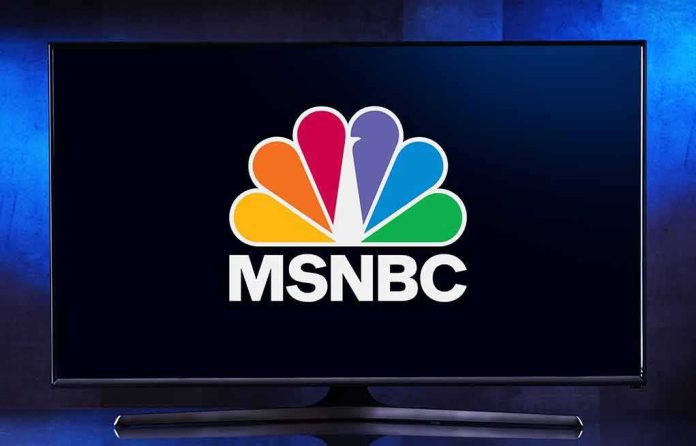
Progressive free busing proposals face fierce scrutiny as Bill de Blasio fails to defend the policy on live television, exposing gaps in left-wing transit advocacy.
Story Snapshot
- Former NYC Mayor Bill de Blasio struggled to justify free busing policy during a national interview, raising doubts about progressive transit reforms.
- Zohran Mamdani’s campaign for fare-free buses highlights a deepening divide in New York politics over fiscal responsibility and service sustainability.
- Media coverage amplified critics who warn against unproven, costly policies that strain taxpayer resources and city budgets.
- Experts question feasibility, citing mixed results from global experiments and major operational challenges for NYC’s transit system.
De Blasio’s On-Air Collapse Puts Progressive Transit on the Defensive
On September 4, 2025, former New York City Mayor Bill de Blasio appeared on MSNBC’s Morning Joe to endorse Assemblymember Zohran Mamdani’s proposal for free public bus service. When pressed to provide examples of major cities where fare-free buses have succeeded, de Blasio was unable to cite any concrete cases, leading to widespread criticism. This high-profile exchange exposed the lack of preparedness among progressive policymakers to defend ambitious reforms, igniting debate over the credibility and practicality of such proposals.
Bill de Blasio Wasn't Expecting This Question About Free Busing…and He Totally Collapsed https://t.co/l1WhNPguSC
— Bob Healy (@TheBonedaddy24) September 4, 2025
The incident quickly became a flashpoint in conservative and centrist media, with outlets characterizing de Blasio’s inability to answer as evidence of progressive overreach and policy naivety. The Morning Joe segment not only raised questions about the real-world viability of free busing, but also invited scrutiny of broader left-wing agendas that push for expanded public services without robust evidence or fiscal plans. Critics argue that such proposals risk ballooning government spending and threaten responsible stewardship of taxpayer dollars.
Background: Fare-Free Transit and Political Motivations
Advocates for fare-free public transit contend that eliminating bus fares would improve equity, increase ridership, and help address climate goals. Zohran Mamdani, a Democratic Socialist serving in the New York State Assembly, has made free busing a centerpiece of his platform, supported by progressive figures like de Blasio. However, New York City’s Metropolitan Transportation Authority (MTA) faces chronic funding shortfalls, and large-scale fare-free transit remains untested in cities of comparable complexity. Previous U.S. experiments—such as in Kansas City—have occurred on smaller scales, while international examples like Tallinn and Dunkirk have produced mixed results.
This policy debate underscores a growing rift within New York politics. Progressive leaders push for bold reforms, often at odds with moderate Democrats and fiscal conservatives who demand evidence and sustainable funding. Media platforms, including MSNBC, serve as battlegrounds where policy advocates are challenged to defend their positions. The MTA and city budgets, already under strain, would face additional hurdles if fare revenue were eliminated without alternative funding sources.
Impact: Fiscal Reality and Community Consequences
Short-term, the Morning Joe exchange has intensified scrutiny of progressive transit proposals, potentially damaging the reputations of both de Blasio and Mamdani among moderate and undecided voters. The debate amplifies concerns regarding policy feasibility, especially as the city navigates post-pandemic economic challenges. Long-term, these controversies may shape the trajectory of NYC transit policy, influencing future campaigns and the willingness of politicians to back ambitious reforms lacking strong precedent.
For low-income and transit-dependent New Yorkers, fare-free buses could mean significant benefits in mobility and reduced inequality—if funding is secured and service quality is maintained. However, the loss of fare revenue would likely require increased taxes or substantial state and federal aid. Without dedicated resources, there is risk of service degradation, impacting reliability and coverage for riders who need it most. The debate also has implications for other major cities, potentially influencing national conversations about public transportation funding and the limits of progressive policy.
Expert Perspectives: Policy Realism vs. Ideological Ambition
Transit experts caution that while fare-free systems may boost ridership and equity, implementing such policies in large, complex cities like New York is fraught with financial and operational challenges. Some urban planners suggest targeted fare reductions for low-income riders as a more sustainable alternative. Studies from international cities show increased usage but highlight long-term funding uncertainties and the potential for service cuts. Progressives champion universal access, but moderates and conservatives emphasize fiscal responsibility and practical outcomes, warning against policies that erode taxpayer value and undermine essential services.
Ultimately, the de Blasio incident underscores the need for rigorous policy analysis, transparent debate, and evidence-based decision-making in public transit. As conservative audiences note, unchecked government expansion and poorly vetted reforms risk undermining economic stability, constitutional principles, and the values of limited, effective governance. The ongoing controversy over fare-free busing serves as a reminder: ambitious promises must be matched by credible plans and proven results.
Sources:
Bill de Blasio Gets Wrecked When Trying to Press for Free Busing







